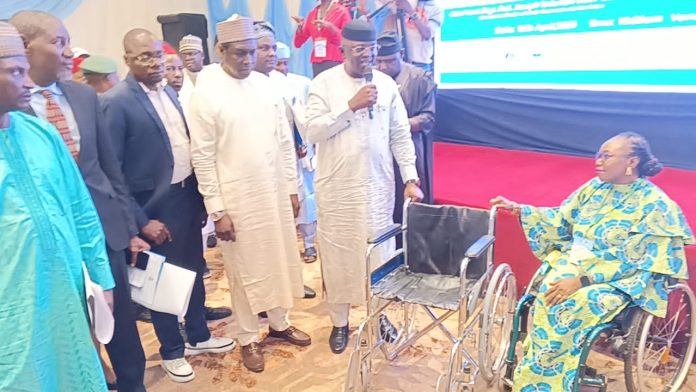In a bold move to mainstream disability inclusion into Nigeria’s emergency response systems, the Federal Ministry of Water Resources and Sanitation, in collaboration with the Nigeria Hydrological Services Agency (NIHSA), unveiled the much-anticipated 2025 Annual Flood Outlook (AFO) on Thursday, putting communication, preparedness, and adaptive strategies at the heart of its flood management blueprint.
The high-profile event, held in Abuja, marked a significant turning point in Nigeria’s approach to disaster resilience—one that recognizes the urgent need for inclusive early warning systems and preparedness strategies that leave no one behind, especially Persons with Disabilities (PWDs), who are often disproportionately affected during natural disasters.
This year’s AFO, themed “Flood Resilience: Focusing on Communication, Preparedness and Adaptive Strategies for Flood Management,” reflects a strong federal commitment to proactive and inclusive flood response mechanisms across the country.
To underscore this commitment, the Honourable Minister of Water Resources and Sanitation donated wheelchairs to representatives of the disability community in the Federal Capital Territory (FCT), led by the Advocacy for Women with Disabilities Initiative (AWWDI). The donation was more than a symbolic gesture—it was a clear signal that the government is ready to walk the talk on disability inclusion in disaster preparedness.
“Early warning systems must reach everyone,” the Minister emphasized during his address.
“Our flood resilience strategy will be incomplete if persons with disabilities are not at the center of preparedness plans.”
The 2025 Flood Outlook offers detailed, data-driven predictions of potential flood risks across Nigeria, providing federal, state, and local governments with critical information for preventive action. But what sets this year’s edition apart is its inclusive approach. The document calls for the implementation of accessible communication tools, such as SMS alerts, sign language interpreters, auditory and visual warning systems, and evacuation protocols designed with accessibility in mind.
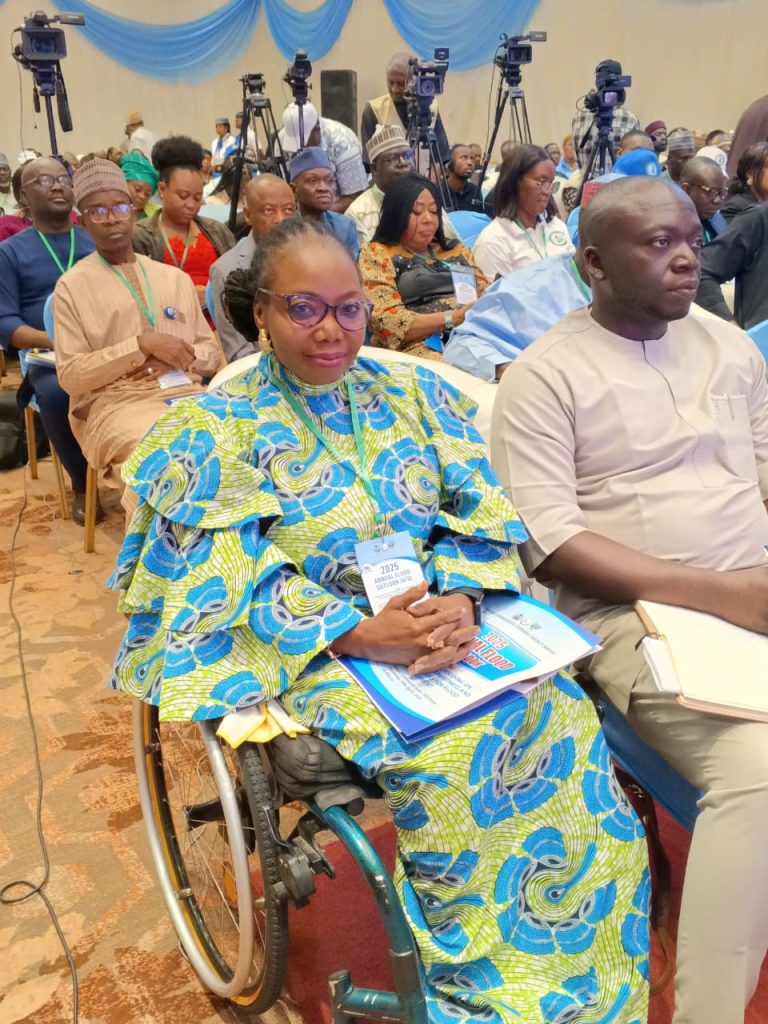
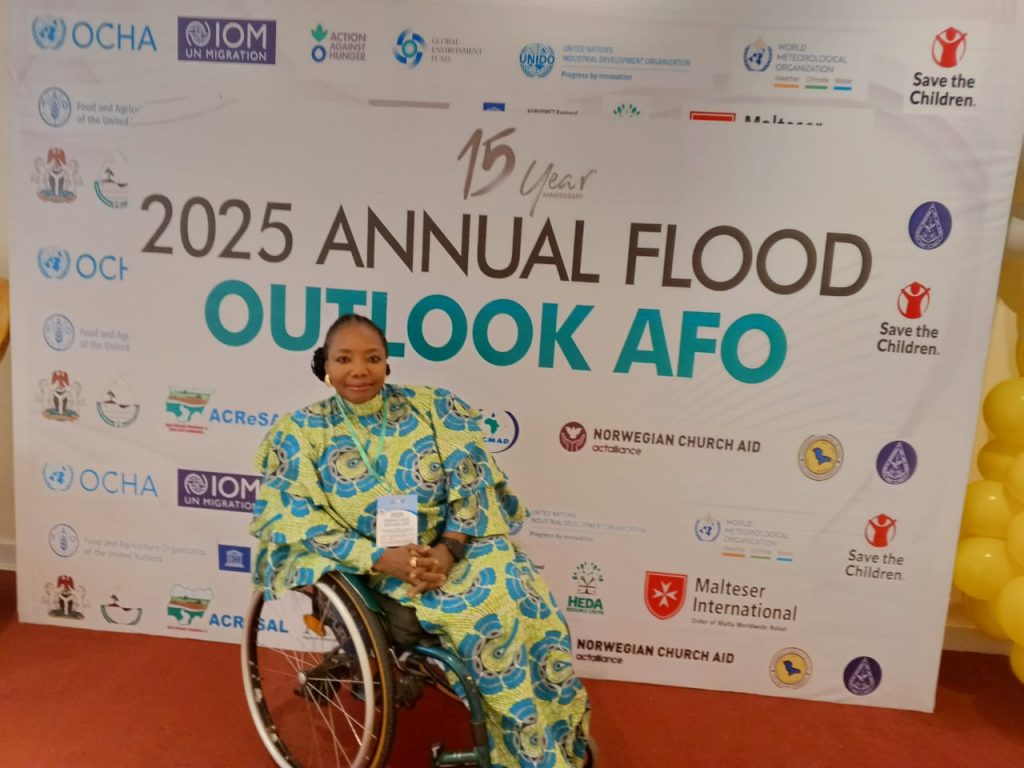
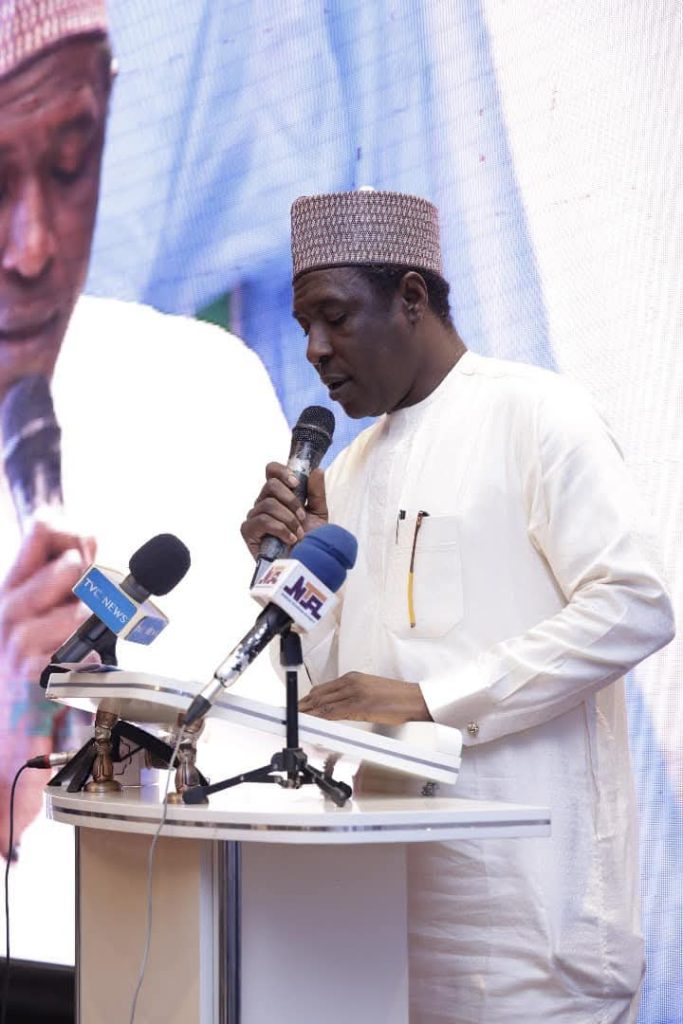
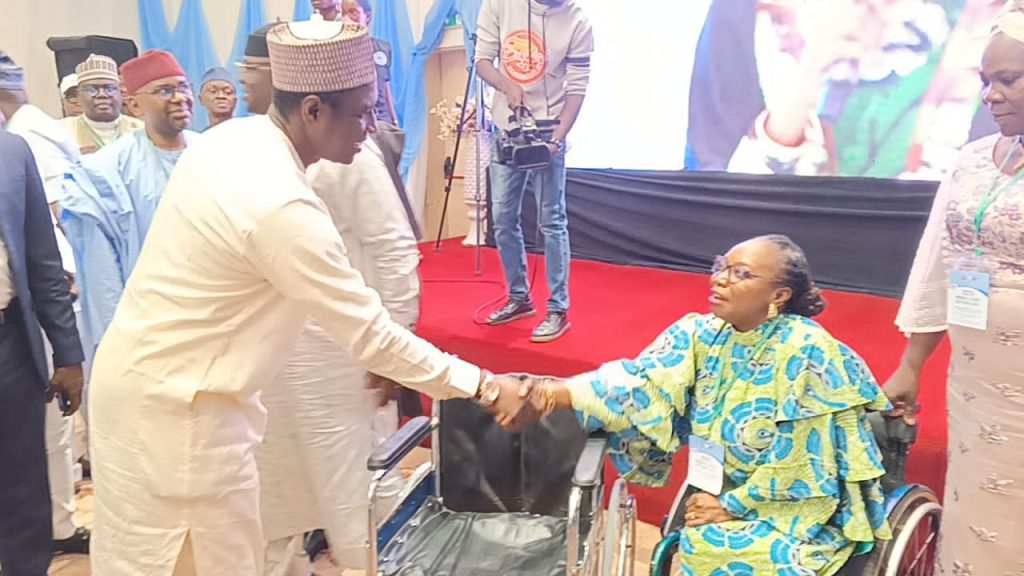
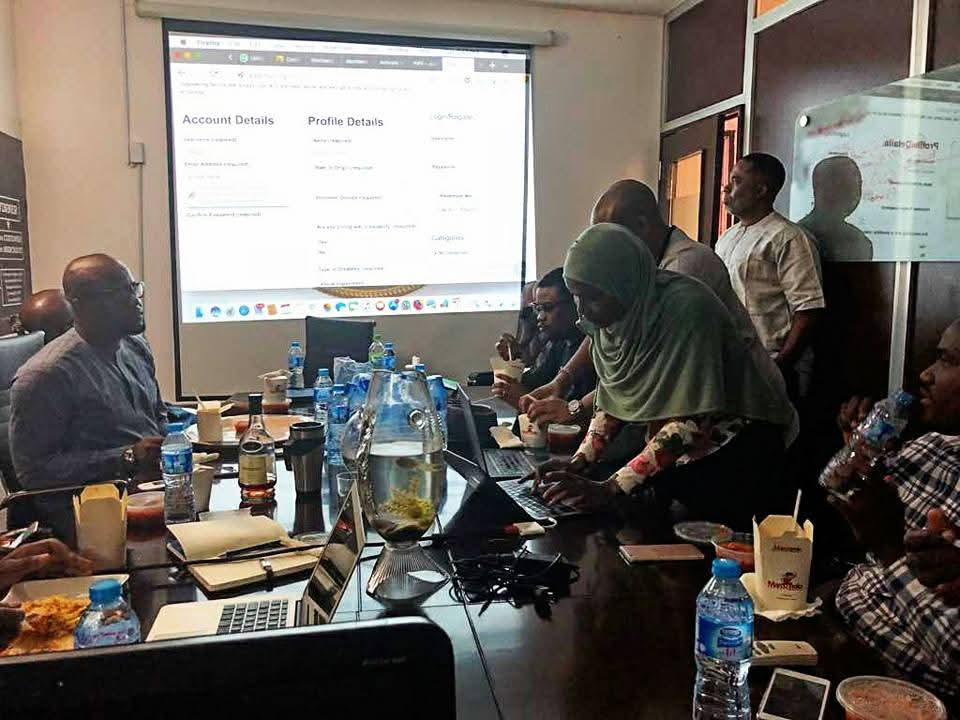
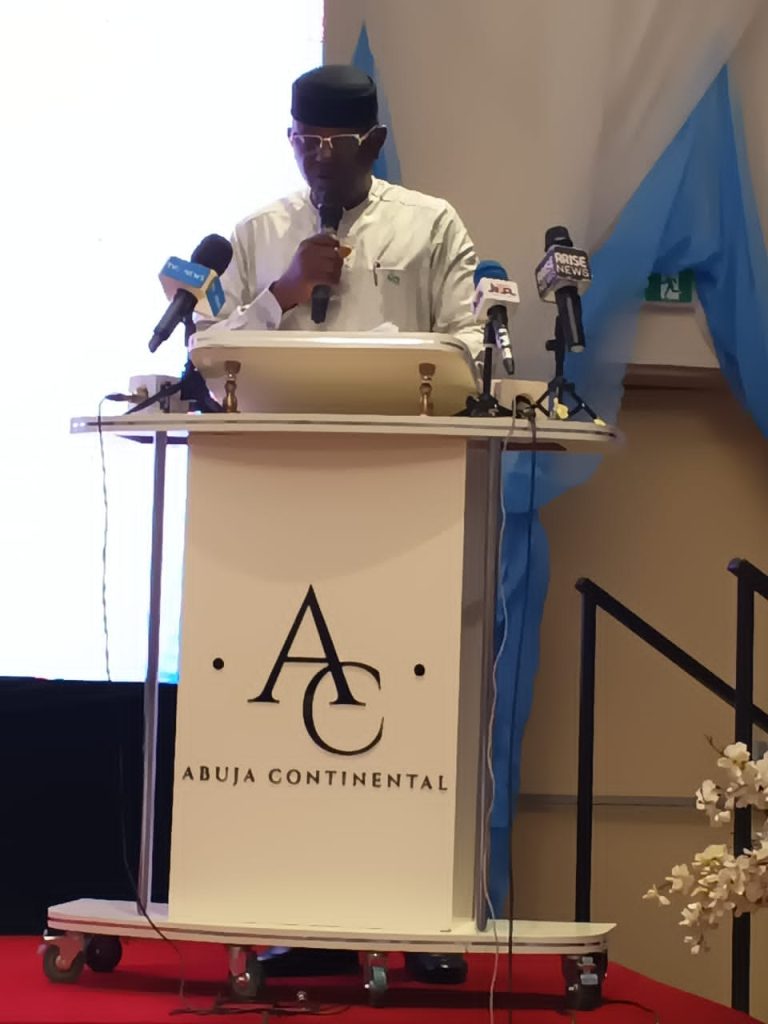
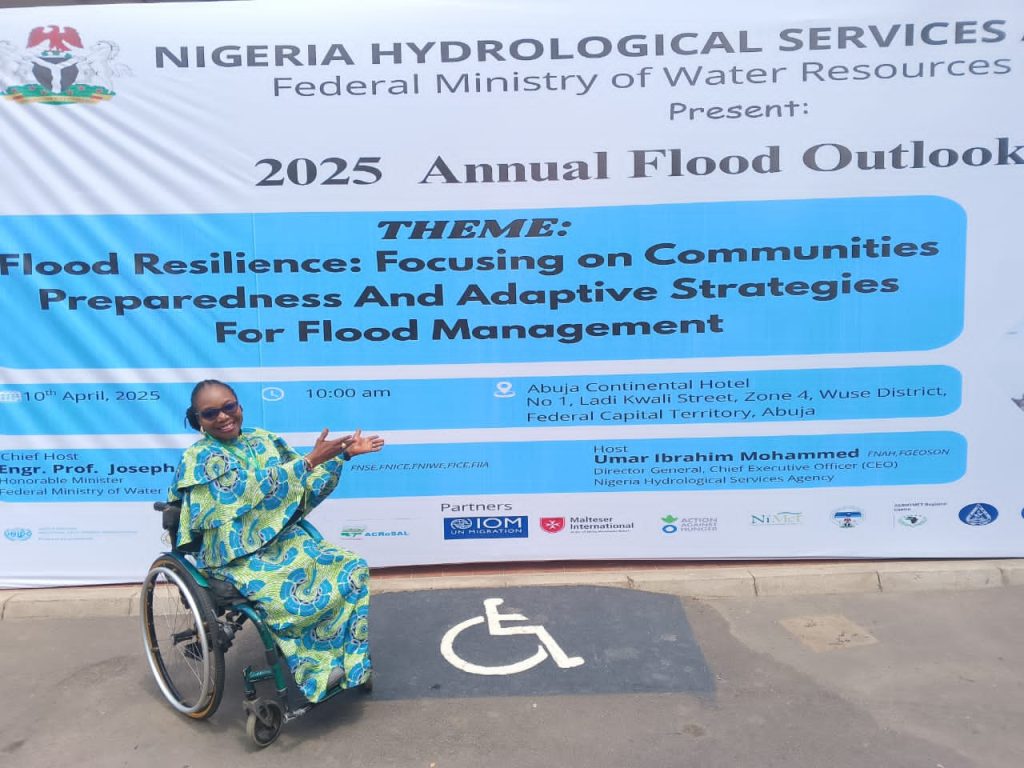
Mrs. Patience Ogolo Dickson, Executive Director of AWWDI, was among the frontline advocates at the event. In her powerful address, she hailed the Federal Government and NIHSA for recognizing the need to design climate resilience through an inclusive lens.
“Inclusion is not charity—it is strategy,” Dickson declared.
“Building flood resilience means making sure every Nigerian—regardless of ability—is protected, informed, and empowered. We cannot talk about national resilience if some segments of the population are still being left behind during emergencies.”
As the country braces for the rainy season, with historical data pointing to areas of heightened vulnerability, stakeholders are urging immediate action to integrate the AFO’s recommendations into real-world policies. Experts argue that the increasing frequency and intensity of flooding—worsened by climate change—requires more than just scientific forecasting; it demands community-based, inclusive planning.
NIHSA’s Director-General, in his remarks, reaffirmed the agency’s commitment to turning data into action.
“Our work does not end with publishing the flood outlook,” he said.
“We are committed to working with organizations like AWWDI, civil society, and state governments to ensure that the most vulnerable are prioritized, and that flood resilience strategies are locally relevant, inclusive, and effective.”
The event also featured panel discussions, expert presentations, and testimonials from flood-affected communities, including PWDs who recounted the life-threatening barriers they face during emergencies—from inaccessible evacuation routes to lack of sign language interpretation during radio and TV warnings.
The unveiling of the 2025 Annual Flood Outlook serves not only as a national call to action but as a wake-up call to all tiers of government: disability-inclusive disaster planning is not a favor—it is a necessity.
As the rains begin to fall across the country, the challenge now lies in translating policy into action—ensuring that inclusive flood preparedness becomes the new standard for saving lives and securing communities.
Because in the face of disaster, everyone counts.
Kolawole Jayeoba reports for the Advocacy for Women with Disabilities Initiative (AWWDI), a leading voice in championing inclusive governance, rights, and humanitarian response for women and girls with disabilities in Nigeria.

